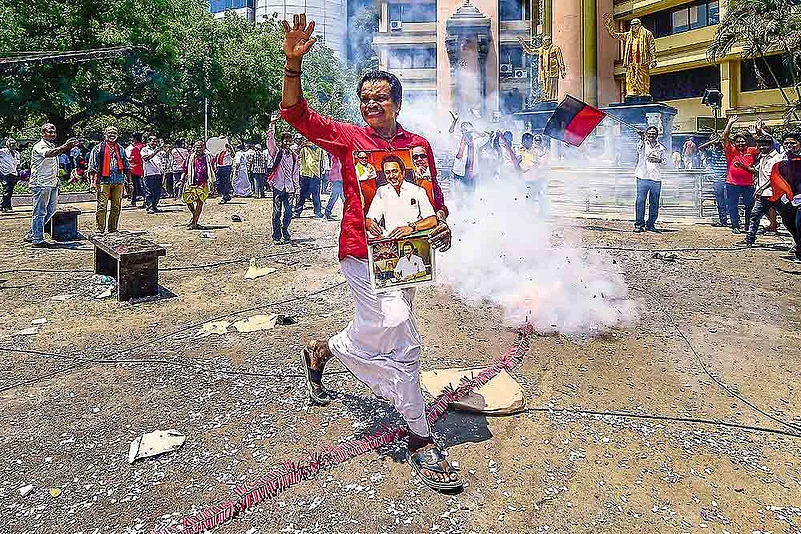Is Tamil Nadu among the last non-BJP bastions that is consistently resisting the saffron party surge? That is the unmistakable message of the 2019 Lok Sabha elections, as the DMK led front swept the state by cornering 37out of the 38 seats that went to elections.
While in 2014 the NDA managed a toehold in Tamil Nadu by winning two seats as part of a third front, this time in spite of aligning with the AIADMK, it failed to make any impact. The BJP’s lone MP Pon. Radhakrishnan, lost from Kanyakumari while another alliance MP, Anbumani Ramadoss of the PMK, lost from Dharmapuri. Even the AIADMK could win only one seat, that of Deputy CM OPS’s son Ravindranath.
“The DMK rode a frenzied anti-BJP wave the opposition, fringe groups and a section of the media had whipped up. They won on a false narrative by accusing the BJP of acting against Tamil Nadu’s interests…. I hope this does not encourage the anti-national forces active in Tamil Nadu,” says state BJP functionary Vanathi Srinivasan.
DMK leaders point out that the state’s political thinking was always rooted in an anti-BJP ideology. “When the BJP tries to expand its footprint in Tamil Nadu there is an unspoken alliance of like-minded forces rooted in the Dravidian ethos. That is what happened in the last three years when the BJP attempted to use the vacuum after Jayalalitha’s death to take remote control through a pliant AIADMK government. The BJP was opposed everywhere—politics, social activism, media, even in cinema,” explains DMK MP T.K.S. Elangovan.

Faced with such antipathy, the BJP never appeared confident. Modi was accused of not visiting the state after the Vardha cyclone while his Union ministers continued to rub the electorate on the wrong side by supporting NEET and the Salem Highway project in spite of strong opposition. “There appears to be a huge disconnect between the BJP and the average Tamilian, which it is yet to overcome,” observes political analyst Raveendran Duraiswamy.
However, with little representation at the Centre, Tamil Nadu could lose out, unless the BJP accommodates the AIADMK’s Rajya Sabha MPs. The AIADMK has 12 MPs in the Rajya Sabha and ended up with just one in the LS. Any representation to the AIADMK in the new Cabinet could be an act of tokenism.
The BJP will have to come up with a Tamil Nadu-specific long-term formula to be politically relevant in this Dravidian stronghold. That it could not make any headway even after the departure of Karunanidhi and Jayalalithaa means that the party has to groom its own, local leaders.
Amidst this ruinous run the only saving grace came in the form of the AIADMK squeaking through in the bypolls to the 22 assembly seats, managing to win nine, enough to maintain a slender majority in the assembly. Though CM E.K. Palaniswami will remain entrenched till May 2021, he would have to ensure that he provides a more efficient administration for a realistic chance during the next assembly elections. Though DMK chief M.K. Stalin was prepared for a Congress defeat, he was hoping for a clean sweep of the 22 assembly seats. It would have given him a chance to push EPS out of power. For now, he has to remain content with being in the opposition—both at the Centre and the state.


























